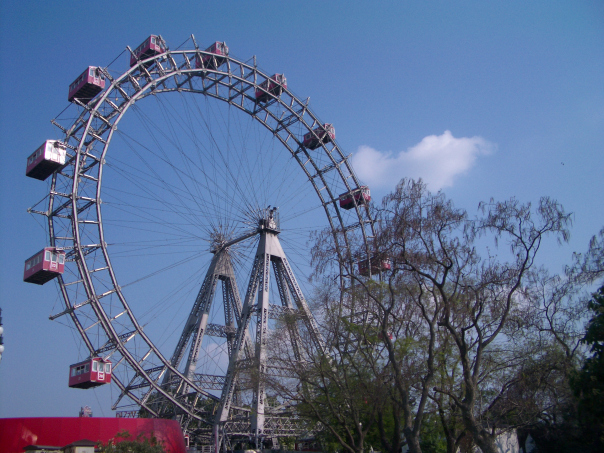Vienna hosts the 2014 European Geosciences Union this week so I thought I would post my own top tips for getting the most of conferences. These are very much my own opinions on this; feel free to disagree and/or add to them in the comments or on Twitter!
1. Don’t go to too many talks
The number of talks at a conference varies somewhat but using EGU as an example, you would be looking at attending 24 talks per day plus poster sessions. On top of this, there are often lunch time and evening forums and workshops etc. If you try to take all of that in, you will very likely fail! Once you reach talk number 20 of the day, you’ll be thinking “this means nothing to me” and you will not be gaining anything from being at the conference.
Instead, I find it much more worthwhile to limit the number of talks I attend and get out of the presentation rooms. What you do in that time is up to you of course but you’ve probably got some terribly important emails in that one hour period where you didn’t check them, so you could respond to those. Alternatively, you could browse around the conference venue (the posters are often up early), grab a coffee or perhaps even speak to people…
2. Chat to people
Probably one of the most fun and valuable elements of attending a conference is talking to people. This can include friends, colleagues and compatriots from other institutions. Such conversations don’t have to end with an outline for a grant proposal or manuscript…it is acceptable to simply chat about life, the universe and everything. Talking to other scientists is often an enlightening experience and you’ll likely meet people in the future at other conferences or during fieldwork etc. This can be very beneficial and also, fun.
3. Check out what is happening in terms of social media
Many of the larger conferences now include a healthy amount of engagement online. Personally I’ve found that following conferences like the EGU and AGU on Twitter very helpful, as you hear about other work being presented, hear about upcoming sessions of interest and discuss the implications of the science. Also, it extends the reach of the conference outside of those attending, which I’ve appreciated myself in the past when I haven’t been at a conference/meeting in person. It is also a good way of meeting people…the introductory line of “I follow you on Twitter” is becoming more and more common!
The EGU have their own Twitter account (@EuroGeosciences), which is a good place to start and you can also check out the official hashtag #EGU2014.
4. Keep a note pad handy
Over the course of the week, you’ll take in a lot of information which will spark ideas in your head about your own work. I often find that this is a very creative time as I think of ideas to apply and test on my own analysis, so jotting these down before they disappear in a haze of coffee/beer is a good idea. Also, be sure to check back through your notes after the conference so that you remember your potential eureka moment!
5. Spread your wings
It is tempting to just stick to sessions that are very close to your research area but one of the benefits of attending conferences (especially large ones like the EGU) is that there are lots of sessions that are aligned to your research but don’t necessarily directly relate to it. This is a good opportunity to broaden your horizons and see what else is going on in the world of science. Obviously this doesn’t extend to people who crush rocks for a living – they should be left to their own devices.

The Riesenrad. Stop by for Orson Welles style reflections on human existence or just take in the view. Photo credit: Will Morgan
6. Specifically for EGU: refer to the Ultravox classic, Vienna, as frequently as possible.
I’ll be writing about the conference throughout the week, so please check back here. Have a good week!
